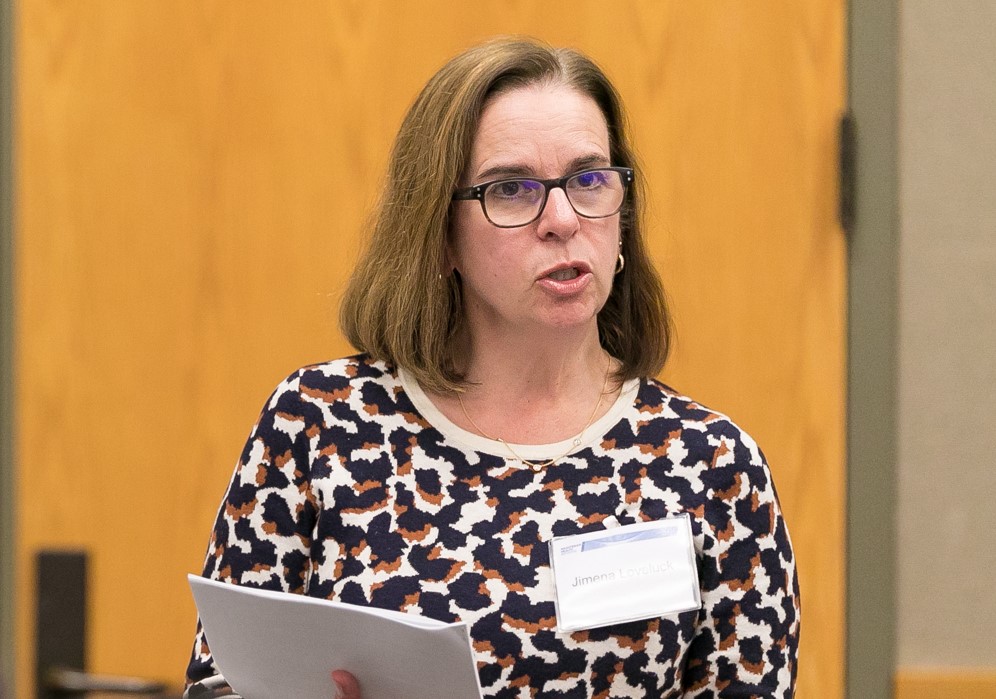 Q. Washtenaw County has seen about 1,300 cases to date, with about 40 percent of these in the 48197 and 48198 zip codes. Why were these areas so hard hit?
Q. Washtenaw County has seen about 1,300 cases to date, with about 40 percent of these in the 48197 and 48198 zip codes. Why were these areas so hard hit?
Loveluck. The Health Department has been focusing on health inequities in these communities for several years. In addition to assessing community health, we review the data about social determinants of health needs–housing, food, transportation, financial security–on a regular basis to determine where inequities are the highest and to try to focus our efforts there.
In the 48197 and 48198 zip codes, our community engagement work partners with community members to address a history of health inequities that have been amplified by COVID-19. And in terms of the pandemic, all of that came together. Greater rates of chronic health conditions, more crowded housing conditions that make quarantine and isolation challenging, as well as a greater number of individuals working in essential service jobs where working from home is not an option–all led to higher exposure and risk for severe disease. At the start of the pandemic it was difficult for residents in this area to get tested even with symptoms. Tests were in short supply and their symptoms were not always taken seriously. So many went without tests, which led to further spread and lack of treatment.
We ultimately were able to make inroads with testing. We demonstrated which areas were most affected and put testing in place in these communities. As a health department, we needed help to get testing sites throughout the county. So the health department worked as a convener to partner with St. Joe’s, Michigan Medicine, and Packard Health to establish five pop-up community testing sites and an ongoing testing site provided by Packard Health. We also had great support from county officials and administrators who saw first-hand the hardships these communities were facing.
Q. How have Washtenaw County’s seniors weathered the crisis?
Loveluck. COVID-19 has had a tremendous impact on the senior population of Washtenaw County. In our county, 41 percent of the cases and 95 percent of the deaths have been among people aged 60 and over. Much of the health department’s response has been to provide as much support as possible to congregate care facilities such as nursing homes. This has included providing vital personal protective equipment to multiple locations, facilitating testing efforts, and assisting in strengthening infection control procedures. Hardships due to social isolation have also been identified as heightened problems across the senior population. In combating this, the health department commends the tireless work and cooperation of area nonprofit organizations in providing essential food and services to the county’s seniors.
Q. You’ve talked about the need to push for policies that address the inequities this pandemic has brought to light. What kind of policies do you think need to be implemented?
Loveluck. COVID-19 has highlighted much of what we already knew about systemic inequities in our county. Even though much of the health department’s current focus has been on the ‘here and now’ of the COVID-19 crisis, we have kept long-term implications of the virus in mind as we plan for the future. Moving forward, in addition to promoting policies to encourage equitable access to health care, it will be important to consider all of the other social determinants of health that affect public health and well being. This includes addressing issues of safe and affordable housing, economic security, care for immigrant communities, and criminal justice and legal reform.
The pandemic has led us to further understand how public health intersects with so many other government, non-profit and faith-based organizations. Part of the health department’s long-term response to COVID-19 will be continuing to work on strengthening cross-sector collaborations to address this multifaceted issue. The communities at risk need to have a seat and a voice at the table. We are lucky in Washtenaw County that we have so many partnerships at the government and community level.
Q. Businesses are reopening. And more and more residents are beginning to venture out. Any advice for them?
Loveluck. Robust testing is very important as we open up. Everyone needs to continue to follow the best practices of hand hygiene, social distancing, and wearing masks. Businesses need to have a plan in place and a system for screening employees. We need them to support contact tracing. We have great resources for businesses, and I would encourage them to review them. For the county we have a good plan. Open gradually and respond accordingly. Businesses have to report any cases to the health department, so if the health department calls you, please answer the phone or return our call. We are relying on the public to be cooperative and help us continue to mitigate the spread of COVID-19.
